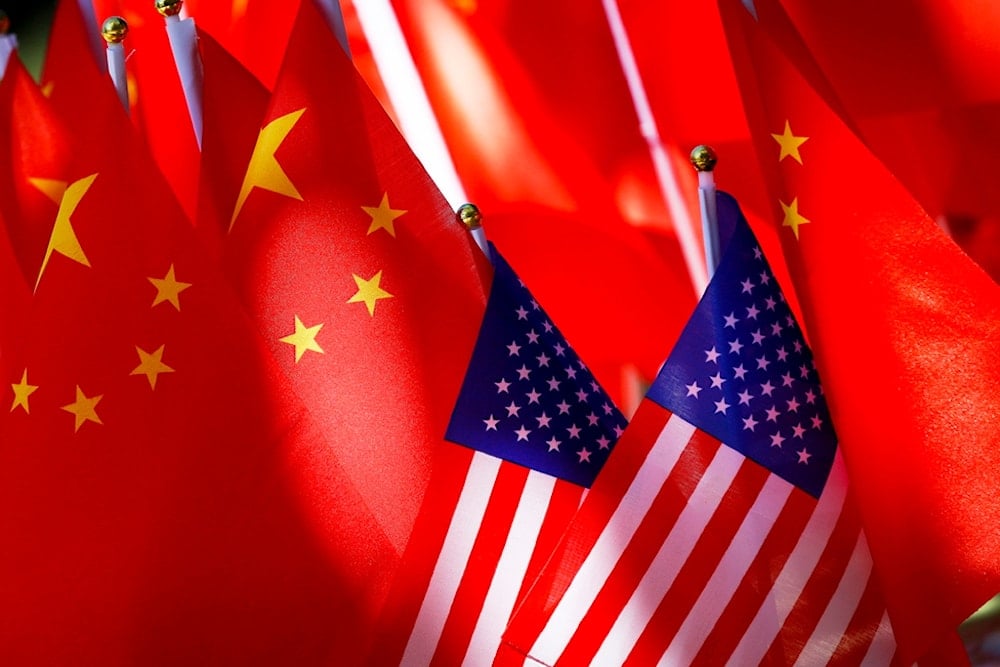China imposes trade restrictions on dozens of US firms
The companies singled out include major US defense manufacturers such as Raytheon Missile Systems, Boeing Defense, Space and Security, and Lockheed Martin Missiles and Fire Control.
-

American flags are displayed with Chinese flags on top of a trishaw, on September 16, 2018, in Beijing. (AP)
China announced punitive trade measures on Thursday targeting several US companies, including Raytheon, Boeing, and Lockheed Martin, signaling a potential escalation in tensions between the two global powers, The New York Times reported.
With just weeks remaining before President-elect Donald Trump assumes office, having pledged to implement new tariffs and sanctions on China, Beijing appears determined to demonstrate its readiness to retaliate, the report indicated.
The Ministry of Commerce in China confirmed that 28 companies have been added to its export control list, citing the need to “safeguard national security and interests.” This move includes banning the export of dual-use items—those with both civilian and military applications—to the affected companies.
Additionally, 10 firms have been placed on an “unreliable entities list” for their involvement in arms sales to Taiwan. These firms are now barred from conducting business in China, with their executives prohibited from entering or residing in the country.
While similar actions have been taken by Chinese authorities in the past, these new measures appear broader in scope. Andrew Gilholm, a China specialist at the consulting firm Control Risks, noted that many of the targeted companies already face existing sanctions.
“Most of this is probably at the symbolic level because so many of these entities were already subject to sanctions,” he said.
“What we’re seeing is the widening scope and number of entities being added in a single listing," Gilholm noted.
Beijing taking a more assertive approach
The companies singled out include major US defense manufacturers such as Raytheon Missile Systems, Boeing Defense, Space and Security, and Lockheed Martin Missiles and Fire Control.
Michael Hart, president of the American Chamber of Commerce in China, highlighted that Beijing generally avoids actions that might directly disrupt the operations of companies contributing to China’s economy.
“Normally the actions China takes do not impact companies who are benefiting China’s economy,” he said.
The New York Times suggested that Beijing’s actions reflect a more assertive approach as it braces for a second presidential term under Trump, a vocal critic of China’s economic influence.
It recalled that Chinese regulators have recently launched an investigation into the US chipmaker Nvidia, banned the export of rare minerals to the US, and targeted specific companies to expose vulnerabilities in their supply chains.
The newspaper highlighted that this economic tit-for-tat has intensified in recent months, building on trade tensions that began during Trump’s first term, when tariffs and trade restrictions were first imposed on China.
Since then, the Biden administration has expanded restrictions on Chinese companies, including bans on dual-use products, with 140 Chinese firms recently targeted.
In recent years, China has laid the groundwork to mirror US tactics by establishing blacklists and sanctions aimed at cutting off American companies from critical resources, the report said.
According to Gilholm, Beijing is now more willing to act decisively. “The pace of things are picking up. The drumbeat of these things is going to be more frequent.”
Read more: China rejects 'groundless' accusations of cyberattack on US Treasury

 3 Min Read
3 Min Read








